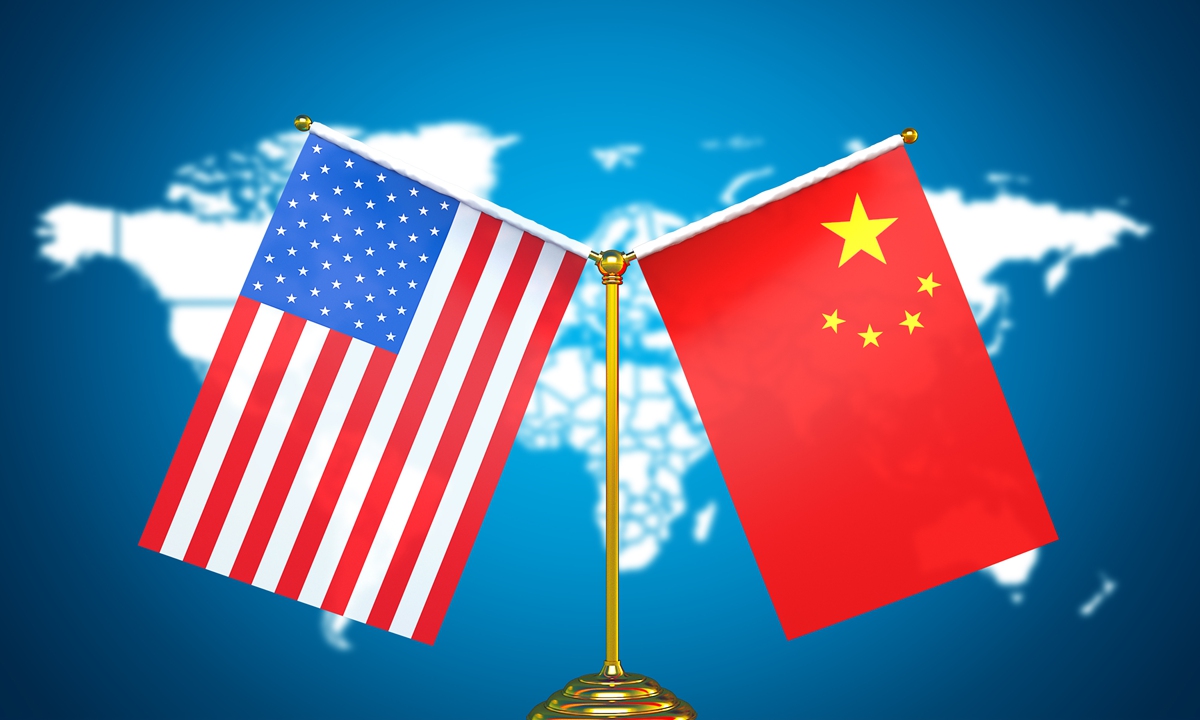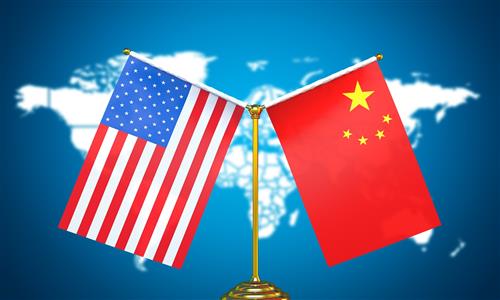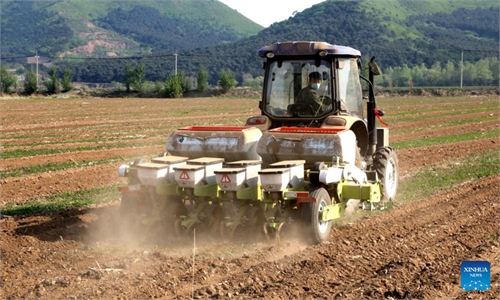China, US firms sign farm purchase deals ‘worth billions,’ showing goodwill in restoring bilateral ties

China US Photo:VCG
A delegation of Chinese enterprises on Monday signed 11 agriculture purchase contracts with US exporters worth billions of dollars, one of the few mass signings since the US initiated a trade war against China in 2018. Observers said that the constructive move shows the Chinese side's goodwill in restoring bilateral relations.
They said it is hoped that Washington will actively respond to China's act of kindness with sincerity by removing additional tariffs imposed on Chinese goods in order to strengthen bilateral economic and trade cooperation, which benefits both countries and the world as a whole.
Several Chinese agriculture companies and US commodity exporter companies signed 11 purchasing agreements at the China-US Sustainable Agricultural Trade Forum and Contract Signing Ceremony held in the US state of Iowa, the US Soybean Export Council said in a press release on its website on Tuesday.
Among the Chinese companies that signed purchasing contracts and agreements are Bohi Industry, China National Cereals, Oils and Foodstuffs Corp International and Sinograin Oil, it said, adding that the contracts are worth "multiple billions" of dollars in value.
China-US agricultural cooperation is a rich field with bright prospects, Chinese Ambassador to the US Xie Feng said in a keynote speech delivered to the forum. "China is developing from a large agricultural country into a strong agricultural country, and thereby the country's need for high-quality agricultural products will rise. This will create new scope for China-US cooperation in sectors including agricultural tech innovation and green development," the ambassador said.
"The constructive move can be seen as China's goodwill and sincerity in restoring China-US relations," Liu Weidong, a research fellow at the Institute of American Studies at the Chinese Academy of Social Sciences, told the Global Times on Wednesday.
Expanding imports from the US will also alleviate insufficient domestic supplies of some agricultural products and diversify China's sources to meet the nation's demand upgrade, Huo Jianguo, vice chairman of the China Society for World Trade Organization Studies in Beijing, told the Global Times on Wednesday.
China is the world's largest importer of agricultural products, and the US is the world's largest exporter of agricultural products. However, due to the trade war initiated by former US president Donald Trump and subsequent US moves to intensify "decoupling", some US agricultural products posted a declining share in the Chinese market over the past several years.
China's annual import volume of soybeans is about 90 million tons. Over the last several years, China diversified its import sources by increasing purchases from countries including Brazil and Argentina.
So far in 2023, China has imported 54.87 million tons of Brazilian soybeans, up 18 percent year-on-year. Total arrivals from the US in the first nine months of 2023 were up 8 percent at 20.08 million tons, Reuters reported, citing data from the General Administration of Customs.
As China has done an act of kindness in restoring China-US relations, it is hoped that the US will actively respond, Huo said, urging the US to remove additional tariffs imposed on Chinese goods and stop hindering normal trade cooperation.
"If Washington is sincere, it should take concrete action," he said.
Coinciding with the signing of the agricultural purchase agreements, the China-US economic working group held its first meeting via video link on Tuesday, with "in-depth, candid and constructive discussions." The meeting is seen by some analysts as an important step by the two sides to manage their differences and return ties to a normal track.
Zhou Mi, a senior research fellow with the Chinese Academy of International Trade and Economic Cooperation, said that challenges persist for China-US economic and trade relations, given that the US side may fail to honor its commitments.
"We should look at what Washington does instead of what it says," Zhou told the Global Times on Tuesday. If the US side continues to damage the basis of mutual trust for bilateral economic and trade cooperation, there will continue to be difficulties in boosting China-US economic cooperation, he said.
As the 2024 presidential election approaches, US politicians will likely continue to take a hard stance on China and gain political benefits through attacking China, Liu said.
Recently, the US continued to put up barriers to normal China-US economic and trade cooperation. In addition to stepped-up chip export controls and investment restrictions, the state of Arkansas recently reportedly ordered Chinese-owned Syngenta to sell 160 acres (65 hectares) of farmland in the state within two years just because the company is Chinese-owned.
Responding to the forced sale, Xie, the ambassador, said that China-US ties face severe difficulties and grim challenges, and urged the US to stop politicizing economic issues and abusing security concepts in order to deepen bilateral agricultural cooperation.


